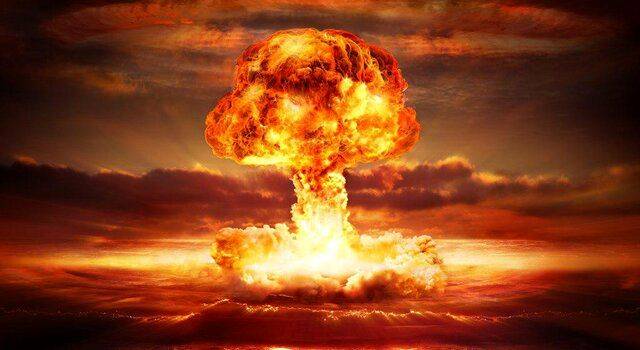629 Views
America Reopens the Nuclear Age It Once Tried to Bury
Just hours before Donald Trump’s scheduled meeting with Xi Jinping in South Korea on October 29, 2025, the former U.S. president took to Truth Social to announce that he had ordered the Pentagon to “immediately resume nuclear weapons testing on equal footing with other powers.”
The United States last conducted a nuclear test in 1992, shortly after the collapse of the Soviet Union. That same year, President George H. W. Bush declared an end to underground nuclear testing, marking the beginning of America’s unchallenged unipolar era.
For more than three decades, the world lived under a fragile sense of nuclear restraint. But the global balance began to tilt after the 2008 financial crisis and the rapid rise of China as a new superpower. Moscow’s assertiveness, exemplified by its invasion of Ukraine and annexation of Crimea, only deepened the sense that the age of great-power rivalry was returning.
Beijing, now the world’s fastest-growing military power, has steadily expanded its nuclear arsenal. According to the Stockholm International Peace Research Institute (SIPRI), China is adding roughly 100 warheads per year and now possesses at least 600 nuclear weapons. At this rate, it could reach 1,500 by 2035—matching the operational stockpiles of the United States and Russia.
Washington’s anxiety over China’s rise predates Trump. Under Joe Biden, the Pentagon’s “nuclear deterrence strategy” shifted to counter Beijing’s accelerated buildup, anticipating that China’s arsenal would soon rival those of the two traditional superpowers. Trump’s return to office and his revival of nuclear testing now represent the culmination of that strategic paranoia.
By ordering new tests, Trump has not only reignited an arms race but also undermined the 1996 Comprehensive Nuclear-Test-Ban Treaty (CTBT)—a cornerstone of global nonproliferation efforts. The decision signals that Washington no longer feels bound by international arms control norms. Other nuclear states, fearing strategic imbalance, may follow suit.
This shift carries catastrophic implications. It encourages non-nuclear states to pursue nuclear capabilities under the pretext of “deterrence,” dismantling decades of progress in controlling weapons of mass destruction.
Predictably, Moscow and Beijing reacted with alarm. China’s Foreign Ministry dismissed Trump’s accusations about Chinese nuclear testing, while Russia’s President Vladimir Putin warned that “any nuclear tests by the U.S. or any other nation will compel Russia to respond in kind.”
For Russia and China, Washington’s new policy is not about parity—it’s about domination. Both now view renewed U.S. testing as a direct threat to their national security and the delicate global equilibrium. A new spiral of mistrust could easily escalate into miscalculation, triggering a nuclear standoff unseen since the Cold War.
History offers grim lessons. Between 1945 and 1996, over 2,000 nuclear tests were conducted worldwide. The United Nations Scientific Committee (UNSCEAR) estimates that millions of people were exposed to radiation, leading to widespread cancer and environmental devastation. American tests in the Pacific forced the displacement of entire communities and contaminated oceans, soil, and groundwater for centuries to come.
Environmental scientists now warn that even a single new nuclear test could release radioactive particles into the upper atmosphere, causing “radioactive rain” thousands of kilometers away—a haunting echo of the 1960s.
Washington’s decision to ignore existing treaties signals the erosion of global arms control itself. The only viable path forward is a coordinated diplomatic response. Other nuclear powers must initiate multilateral dialogue—with U.S. participation under international pressure—to prevent a new nuclear arms race.
The United Nations, through its General Assembly and Security Council, must act swiftly to restore the global disarmament framework. The alternative is unthinkable: a world sliding back into the atomic madness it once swore never to repeat.
Translated by Ashraf Hemmati from the original Persian article written by Navid Daneshvar
https://www.nbcnews.com/politics/national-security/trump-orders-pentagon-begin-testing-nuclear-weapons-immediately-rcna240681
https://www.theguardian.com/world/2023/oct/20/china-expanding-nuclear-arsenal-much-faster-than-predicted-us-report-says
https://www.nytimes.com/2024/08/20/us/politics/biden-nuclear-china-russia.html
https://www.iai.it/en/pubblicazioni/c05/thinking-unthinkable-consequences-trumps-decision-resume-nuclear-testing
http://eng.chinamil.com.cn/2025xb/O_251451/16421207.html
https://www.aljazeera.com/news/2025/11/3/china-denies-nuclear-testing-calls-on-us-to-maintain-moratorium
https://www.washingtonpost.com/national-security/2025/11/06/trump-nuclear-test-russia-putin/
https://www.cnbc.com/2025/10/30/russia-on-guard-after-trumps-call-to-resume-nuclear-weapons-testing.html
https://www.un.org/en/un-chronicle/ending-nuclear-testing-advance-global-peace-and-security
https://www.sipri.org/sites/default/files/2023-01/elements_of_a_planetary_emergency-environment_of_peace_part_1.pdf

Comment
Post a comment for this article